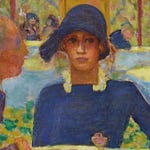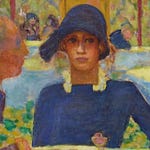I SPENT A WHILE teaching the remaining Tars the salute that I had worked out in the evenings, in my room, in front of my mirror, late at night.
When I had first tried saluting, what I saw in the mirror disappointed me, even after an hour of practice, even though I could deliver a crisp salute that seemed to me nearly as good as those I saw delivered by drill teams in the parades for Memorial Day, the Fourth of July, the Clam Fest, and Labor Day. I was disappointed because my salute was nearly as good as theirs, but not as good. I wasn’t sure why my salute fell short of the drill-team ideal, but I could see that it did.
When I tried the salute on my parents and asked them what was wrong, they were no help at all. My father beamed at the sight of me in my uniform, saluting. “Smart!” he said. “Very smart. You’ve got just the right snap there, Peter.”
“But what’s wrong?” I asked. “Something’s wrong, but I don’t know what it is.”
“Why, I don’t think anything’s wrong at all, Peter,” said my mother. “I think you look very dashing. Doesn’t he, Bert?”
“Well,” said my father, chuckling, “I wouldn’t use that word, but I know what you mean, and I’d say you’re right.” He gave me a grin and wink that meant, between men in those days, “Women sure are a funny bunch, but where would we be without them?”
“Why wouldn’t you use the word dashing?” asked my mother.
“Well,” said my father, “it’s not a word I would use, that’s all. I wouldn’t say about a guy, ‘He looks dashing.’ It would sound stupid for me to say something like that.”
“What would you say?” asked my mother.
“Oh, I don’t know,” said my father. “I’d—oh—I don’t know, I probably wouldn’t say anything. Come on, Ella, don’t make an issue out of this.”
“I think he looks dashing,” said my mother. She spun around and walked into the kitchen.
My father snorted, dropped into his chair, and picked up his paper. “There’s nothing wrong with the salute, Peter,” he said. “It’s—”
We looked at each other for a moment.
“It’s okay,” he said, and raised his newspaper.
I went upstairs, saluted in front of the mirror, and went to work, modifying the salute until I was happier with it. In the process, I learned three new lessons.
First, I learned that no one close to me, certainly not my parents, could give me an honest appraisal of anything I did.
Second, I learned that by sufficiently deviating from the norm, one can hide the shortcomings of what one does, for a time, by claiming to be working in a new area entirely. As an immediate consequence of this lesson, I developed a Tars salute, a salute sui generis, a salute outside the standards by which a drill team’s salute would be judged.
Third, I learned that if I got away with the Tars salute, if I was capable of hiding the deficiencies in what I did by appearing to be doing something outside conventional forms, outside conventional criticism, then the real truth of the matter was that no one could give me an honest appraisal of anything I did but myself.
“LET’S TRY IT just once more,” I called out to the Tars in the bleachers. “Right arm straight out to the side. I want you to fling that arm out smartly. Now bend at the elbow and bring your hand forward in a nice smooth arc. Slowly, slowwwwwly. Keep your fingers extended; keep your palm parallel to the floor. Then right in here, everybody do any old thing you want, anything at all. That’s it. Okay, now bring your hand in to the shoulder, that’s it, now whip that forearm up! You’ve got to stop, bang, at forty-five degrees. Now zoom your fingers to your forehead, like a rocket! Let’s try it once more.”
The Tars of the First Water emerged from the coach’s office and shuffled into their positions in the ranks. “That’s all the practice we have time for, Peter,” said Mr. Summers. “We’ve got to start the meeting.”
“Oh,” I said. “Do you think we really have to? Maybe we should just spend this week practicing, and then we could have a perfect meeting next week.”
“No, Peter,” said Mr. Summers. “We have to start the meeting now.”
“Aye, sir,” I said. To the Tars, I called out, “That’s all the time we have for practice tonight. We have to start the meeting. But practice at home during the week, okay? And keep this in mind: ‘Every day—’”
“Peter.”
“Aye, sir. Now, Tars, you remember how the meeting starts. Robby’s going to call you to the floor by rank just the same way we did it last week. Why don’t you just pretend that you’re hanging around and talking the way you were last week, and then as Robby calls your rank, you take to the floor. Good luck.”
I stepped aside, and I was surprised and pleased to see that the Tars took my suggestion quite literally. Not only did they pretend to be chatting and otherwise killing time while waiting for the meeting to begin, but their pretending took the form of duplicating the chats and the forms of killing time that they had employed the previous week. This week, though, they made a much better job of it. They were more polished. Their laughter was more ebullient, their pranks were more boisterous, their confidential whispers were more mysterious, their games were more competitive. We were getting somewhere.
In Topical Guide 222, Mark Dorset considers Young People: Their Revolt Against Institutions, Their Readiness for Everything that Is Heroic, for Martyrdom or Crime, Their Fiery Earnestness, Their Instability and Life Lessons from this episode.
Have you missed an episode or two or several?
You can begin reading at the beginning or you can catch up by visiting the archive or consulting the index to the Topical Guide.
You can listen to the episodes on the Personal History podcast. Begin at the beginning or scroll through the episodes to find what you’ve missed.
You can ensure that you never miss a future issue by getting a free subscription. (You can help support the work by choosing a paid subscription instead.)
At Apple Books you can download free eBooks of “My Mother Takes a Tumble,” “Do Clams Bite?,” “Life on the Bolotomy,” “The Static of the Spheres,” “The Fox and the Clam,” “The Girl with the White Fur Muff,” “Take the Long Way Home,” “Call Me Larry,” and “The Young Tars,” the nine novellas in Little Follies, and Little Follies itself, which will give you all the novellas in one handy package.
You’ll find an overview of the entire work in An Introduction to The Personal History, Adventures, Experiences & Observations of Peter Leroy. It’s a pdf document.












